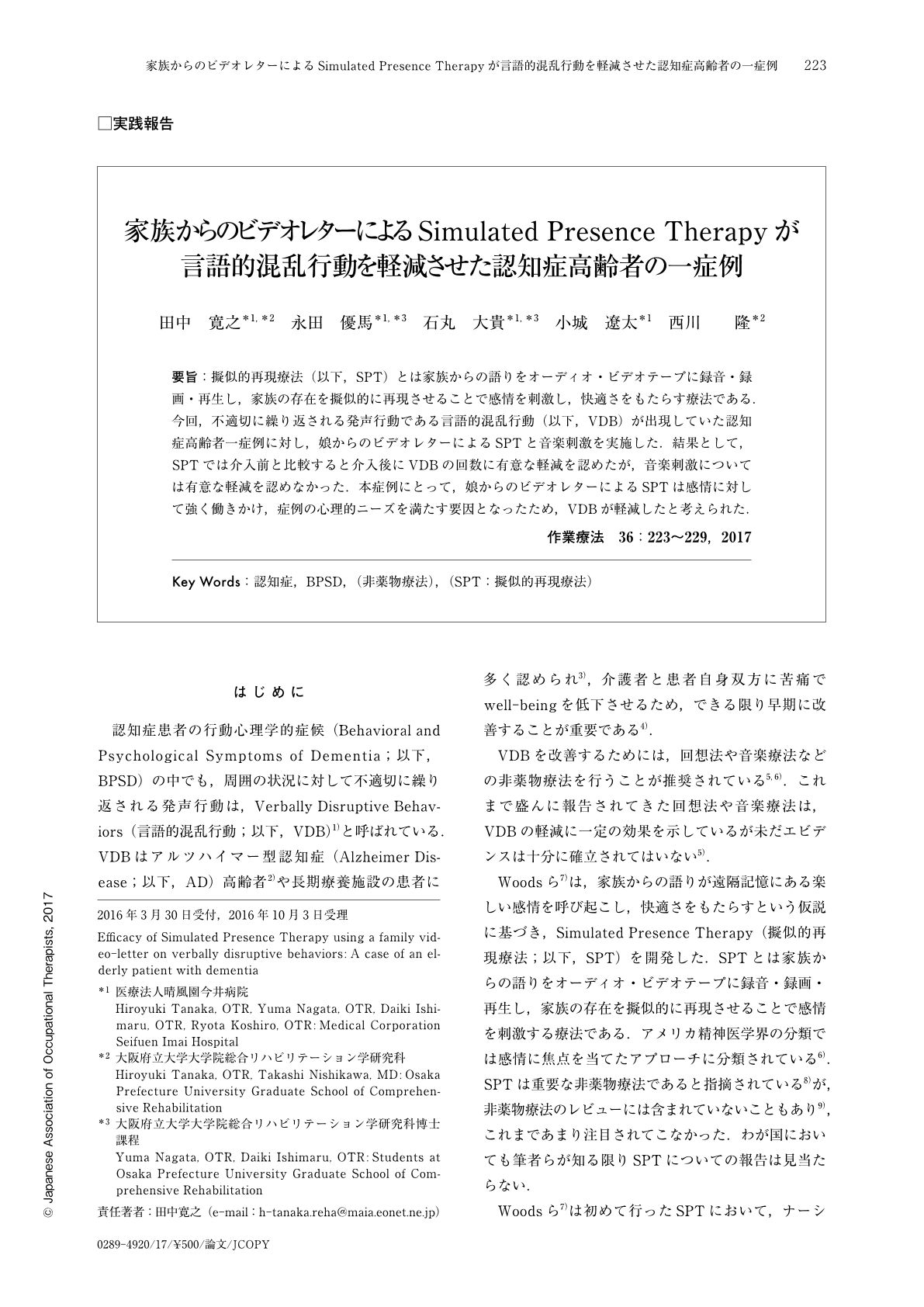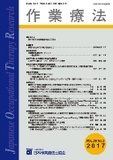Japanese
English
- 販売していません
- Abstract 文献概要
- 1ページ目 Look Inside
- 参考文献 Reference
要旨:擬似的再現療法(以下,SPT)とは家族からの語りをオーディオ・ビデオテープに録音・録画・再生し,家族の存在を擬似的に再現させることで感情を刺激し,快適さをもたらす療法である.今回,不適切に繰り返される発声行動である言語的混乱行動(以下,VDB)が出現していた認知症高齢者一症例に対し,娘からのビデオレターによるSPTと音楽刺激を実施した.結果として,SPTでは介入前と比較すると介入後にVDBの回数に有意な軽減を認めたが,音楽刺激については有意な軽減を認めなかった.本症例にとって,娘からのビデオレターによるSPTは感情に対して強く働きかけ,症例の心理的ニーズを満たす要因となったため,VDBが軽減したと考えられた.
Verbally disruptive behaviors (VDB) refer to inappropriate and repeated vocal behaviors in patients with dementia. VDB cause deterioration in the well-being of both the patient and caregiver. Simulated Presence Therapy (SPT) is a non-pharmacological therapy that is used to treat patients with VDB. SPT stimulates feelings in patients with dementia by replicating a pseudo family member through audio- and videotapes, and providing them with comfort. In this study, we performed SPT and musical stimulation by giving a video-letter to a patient with dementia from a convalescent rehabilitation ward. The results indicate that VDB were lower both during and after SPT compared with the pre-SPT period. We concluded that SPT with the video-letter stimulated the patient's feelings more than the music stimulation, although both audio and visual stimuli were present and met the patient's psychological needs. This may have encouraged the patient to recall invaluable memories of her family.

Copyright © 2017, Japanese Association of Occupational Therapists. All rights reserved.


